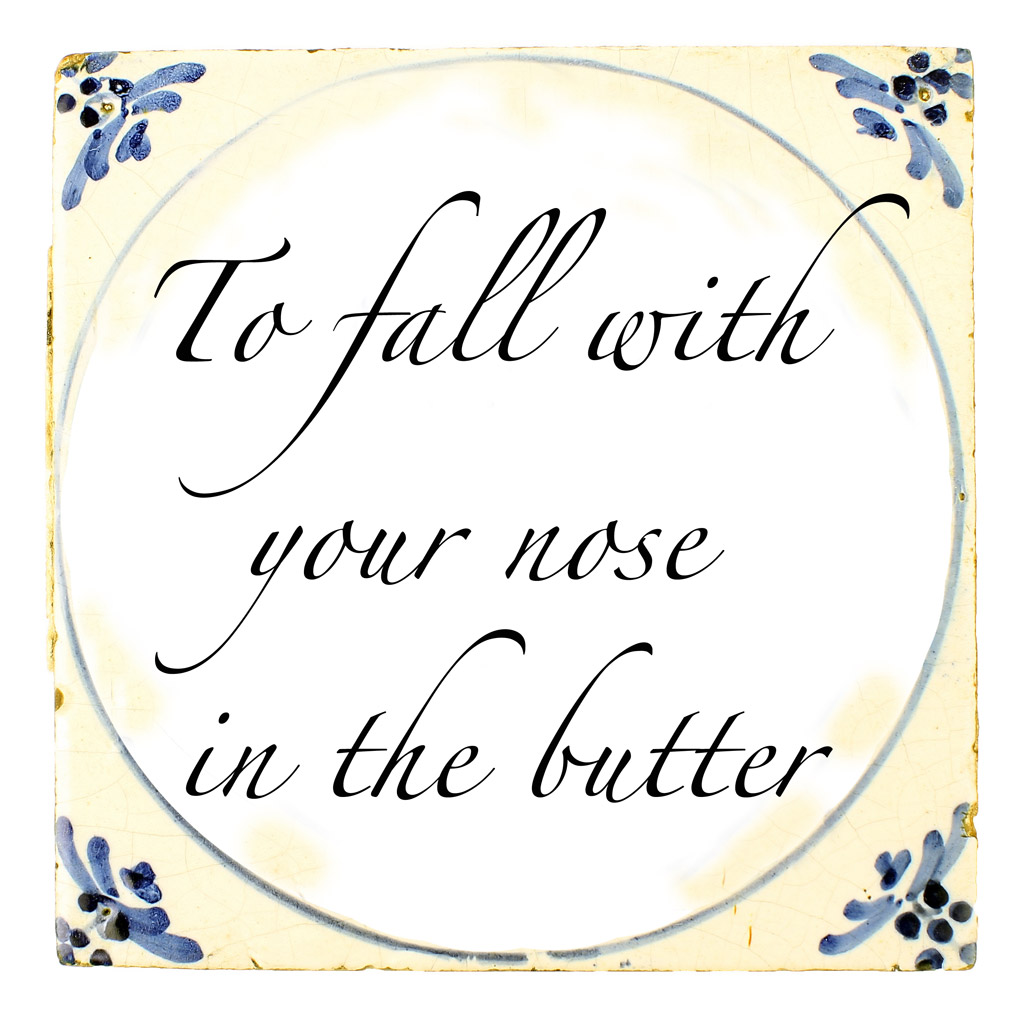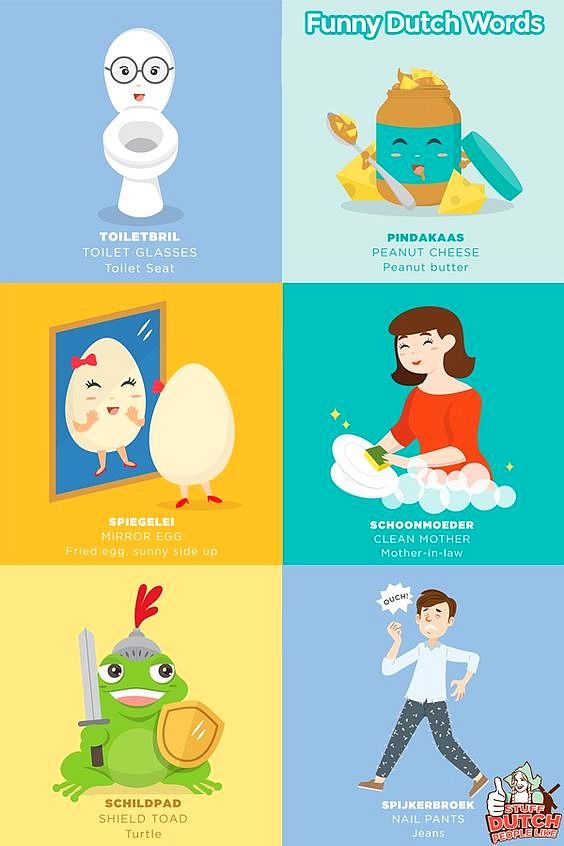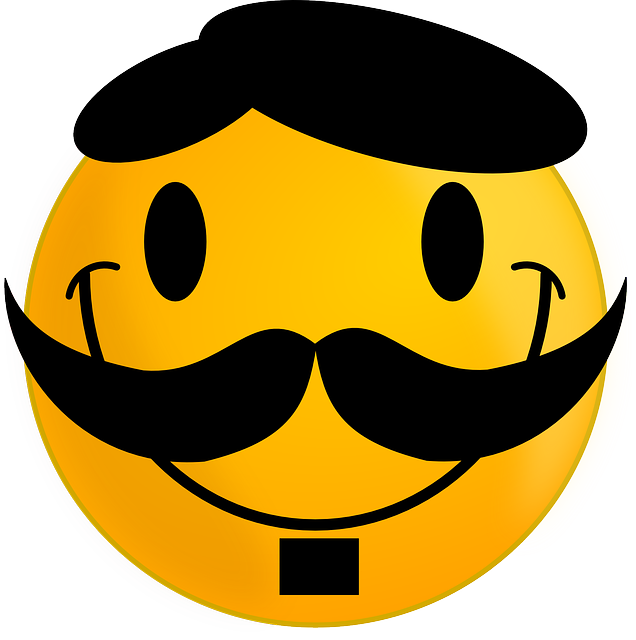Funny Dutch Expressions Lost in Translation. A guide to understanding some Dutch expressions, whose literal translation can be very funny.
Funny Dutch Expressions Lost in Translation.
Here is a guide to understanding some Dutch expressions, whose literal translation can be very funny.
1 april, kikker in je bil
“1st of April, frog in your butt”. The right expression for a country, whose land is almost all a pond. 😉

They even have a song…
Nu komt de aap uit de mouw
“Now the monkey comes out of the sleeve”.
In the past, street artists would often perform tricks by hiding a monkey in their coats. At the end of the performance the monkey would “come out of the sleeve” and reveal the trick! The moment that a hidden motive or the truth behind something is revealed.
In English it would mean “to let the cat out of the bag”.

Alsof er een engeltje over je tong piest
“As if an angel is peeing on your tonge”. An expression meaning that you’re enjoying your meal. Lekker!
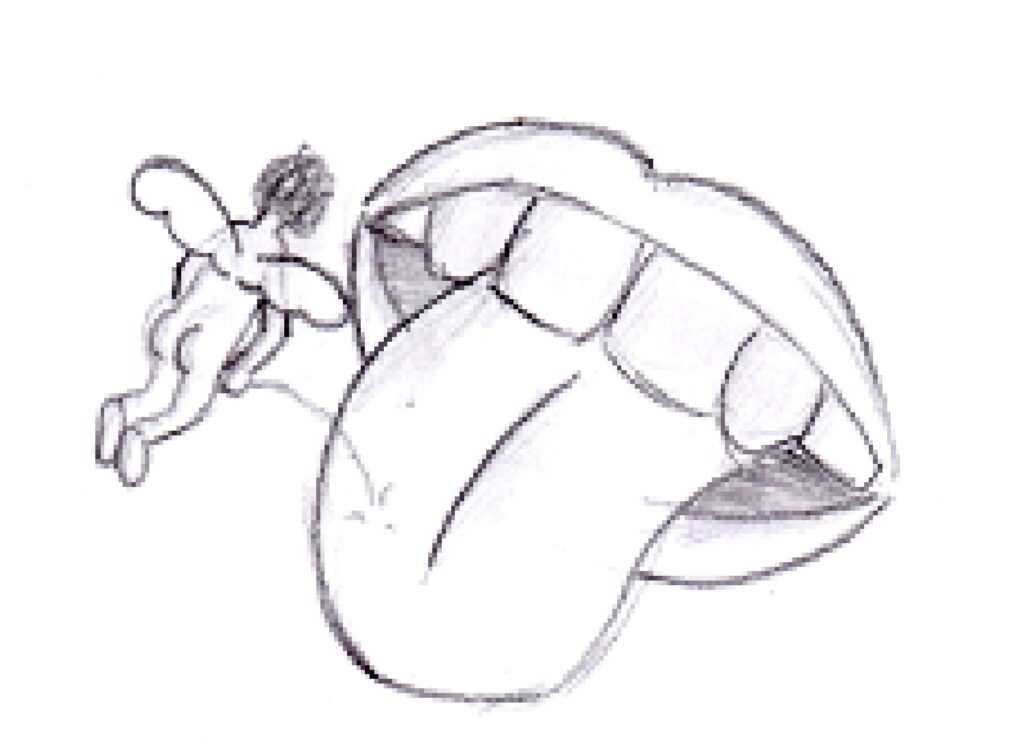
Het regent pijpenstelen
“It’s raining pipe-steams”. In English it would be “It’s raining cats and dogs”. Who are we to judge?
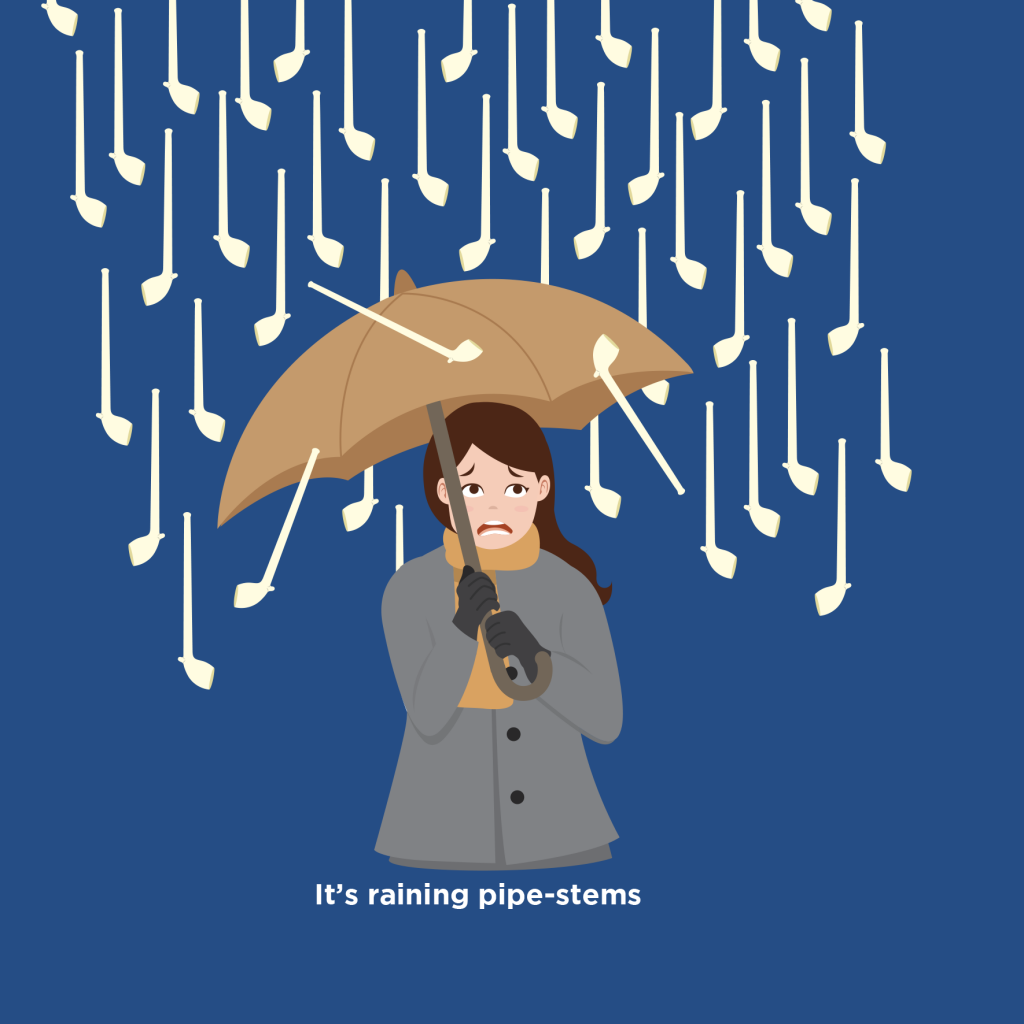
Een kat in de zak kopen
“To buy a cat in the bag”. A beautiful expression to give the idea of being duped into buying something without inspecting it properly.
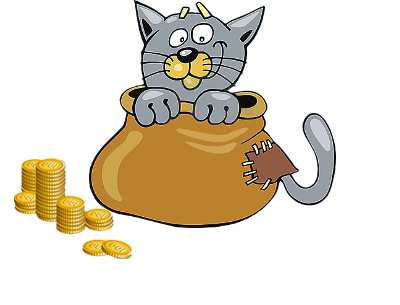
Al draagt een aap een gouden ring, het is en blijft een lelijk ding
“A monkey with a golden ring is still an ugly thing” is used to give the idea that superficial or cosmetic changes are futile at disguising the true nature of a person or thing.
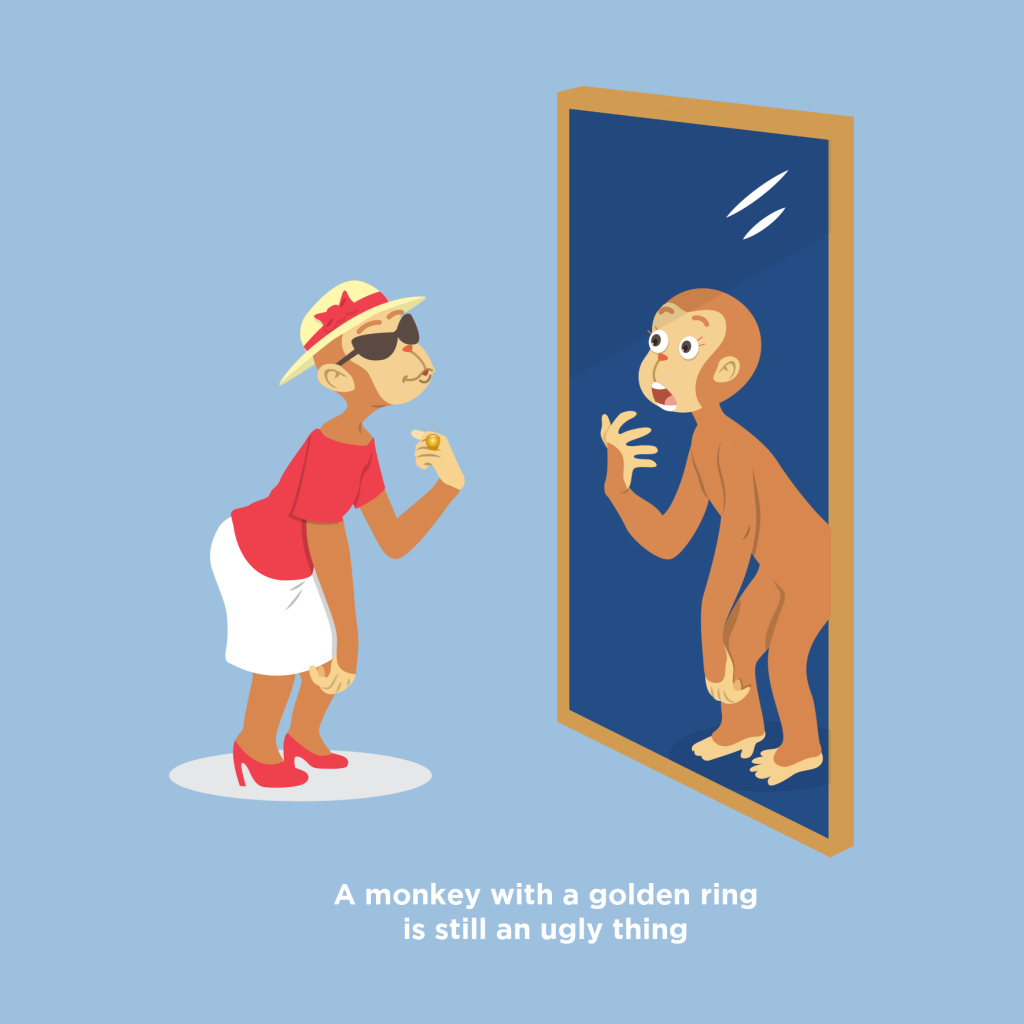
Haar op de tanden hebben
“To have hair on one’s teeth” as to be very strong.
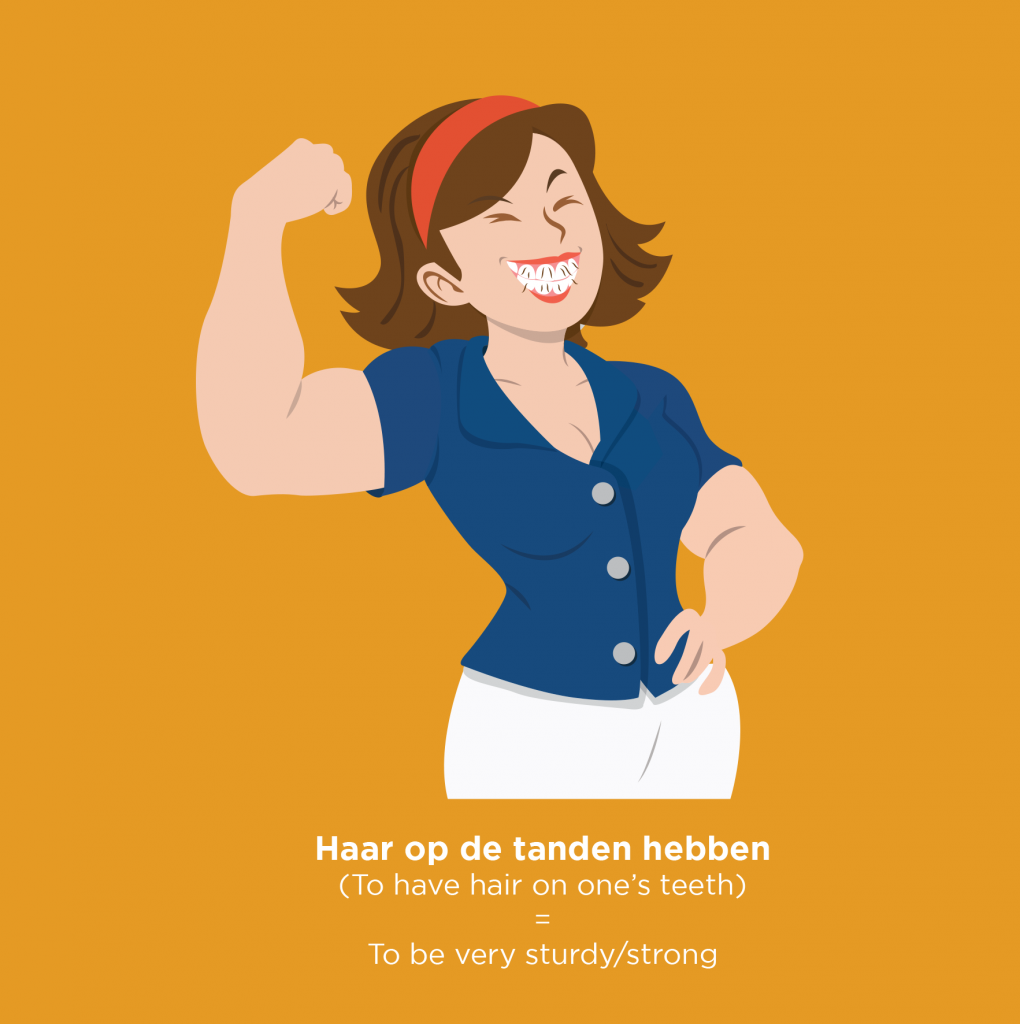
Je weet nooit hoe een koe en haas vangt
“You never know how a cow cathces a hare” So you never know how things will turn out: strange things can aways happen.

Ben je van de trap gevallen?
“Did you fall down the stairs?” The original version of the expression “Hij is van de trap gevallen en heeft zijn haar gebroken” (He fell down the stairs and broke his hair) was already in use in the 18th century. It was and it is still used to point out that you had a rather drastic hair cut.
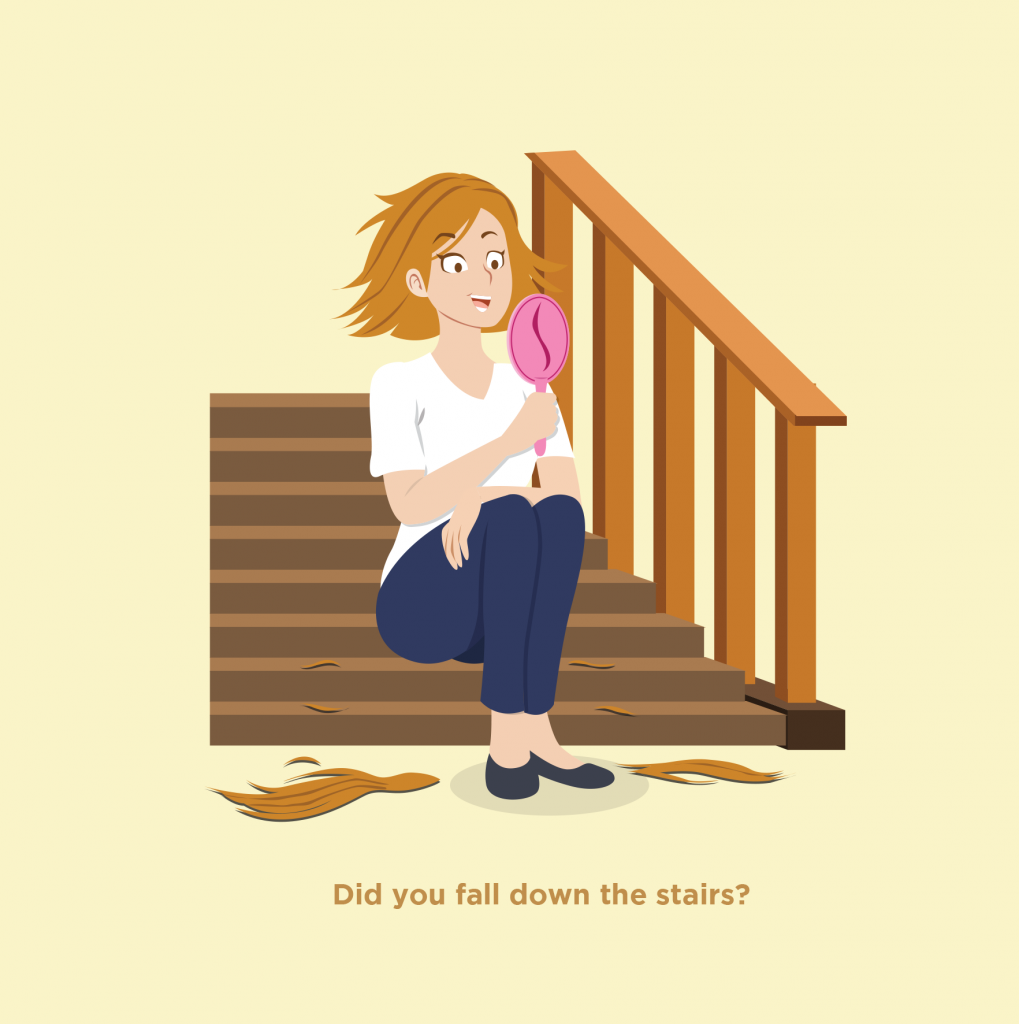
Van een mug een olifant maken
“To make an elephant out of a fly”. Don’t make something out of nothing.
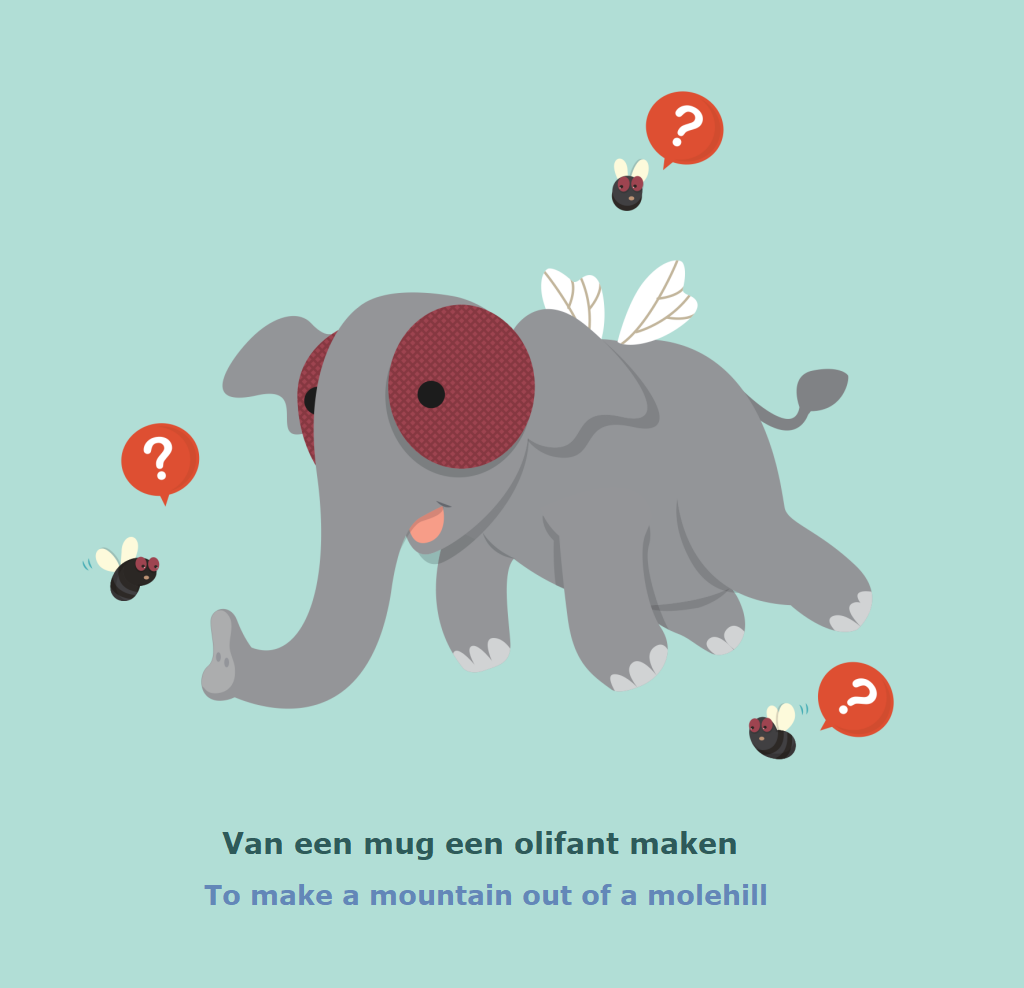
Als twee honden vechten om een been loopt de derde ermee heen
“When two dogs fight over a bone, a third dog walks away with it alone. So, dont’ fight because a third one will certainly benefit.
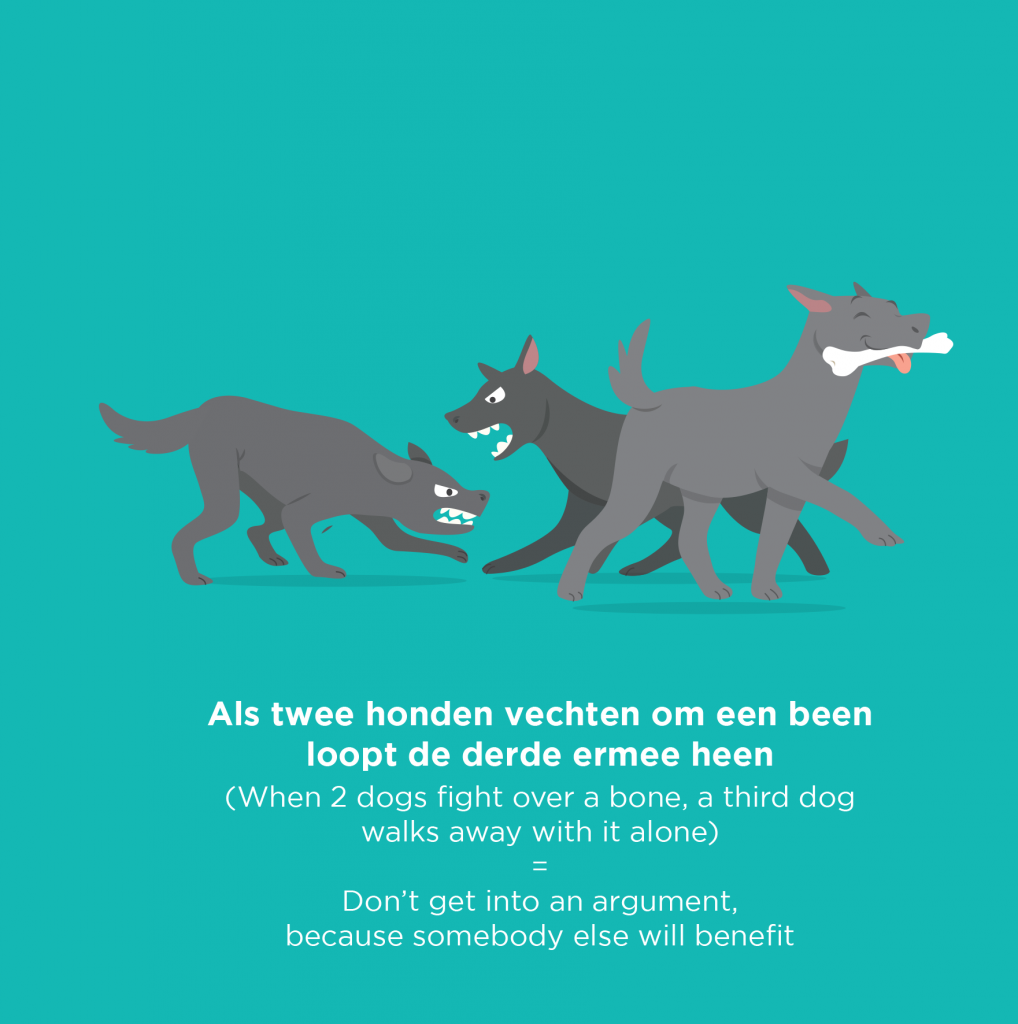
Wie boter op zijn hoofd heeft, moet uit de zon blijven
“He who has butter on his head should stay out of the sun”. A colourful expression meaning that you should not criticize others unless you yourself are without fault.
The phrase is said to have been around since the 17th century, as it was found in a text by the famous Dutch poet Jacob Cats (1577-1660).

Een slag van de molen weg hebben
To act crazy (especially if you’re hit by a windmill)
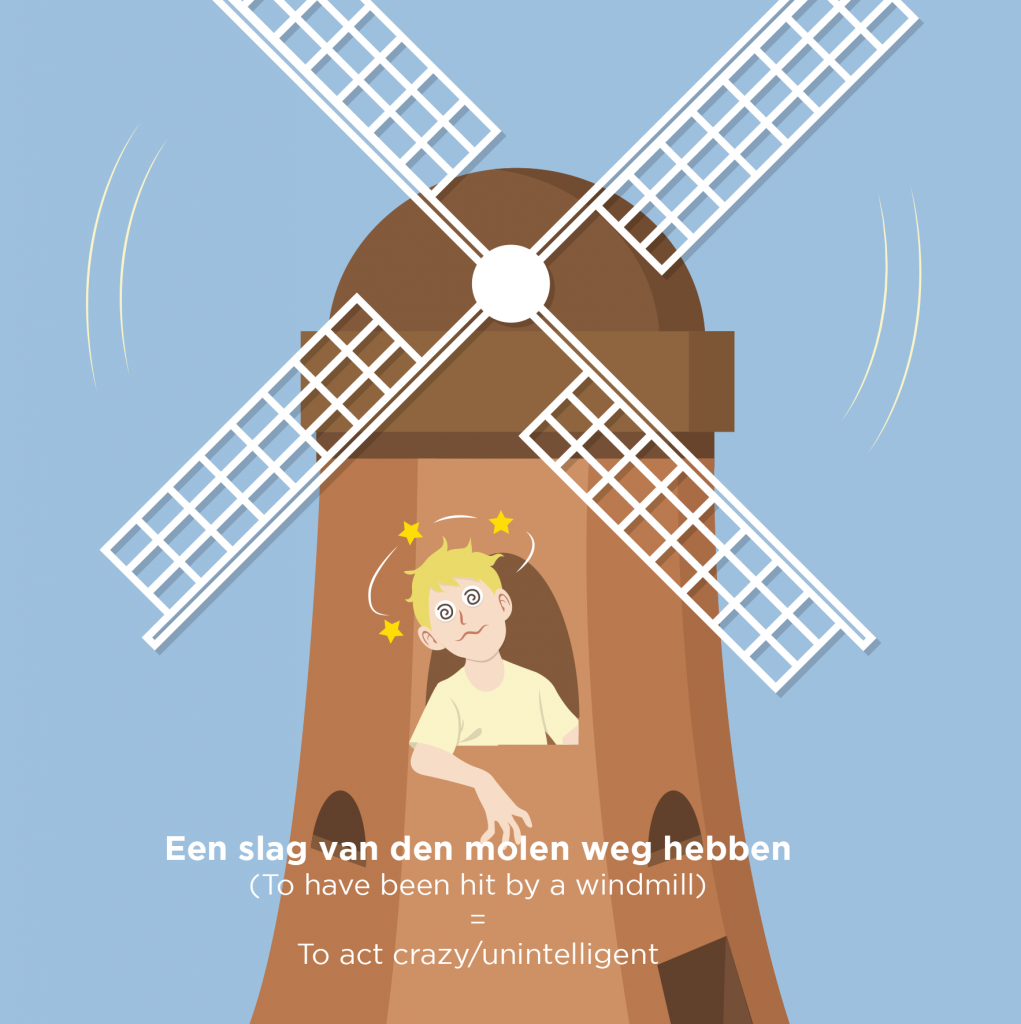
Weten waar Abraham de mosterd haalt
“To know where Abraham gets the mustard from”. To have great insight into something.
This expression has its likely source in the Old testament, where Abraham is ordered to sacrifice his first born. He collects “mutsaard”, an old term for firewood. Mutsaard over time likely bastardized to mosterd, et voila!
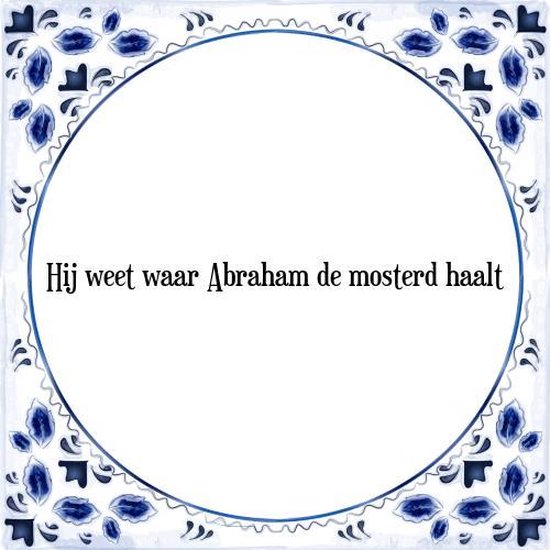
Met de deur in huis vallen
“To fall with the door into the house”. To get straight to the point, like a SWAT team! 😉
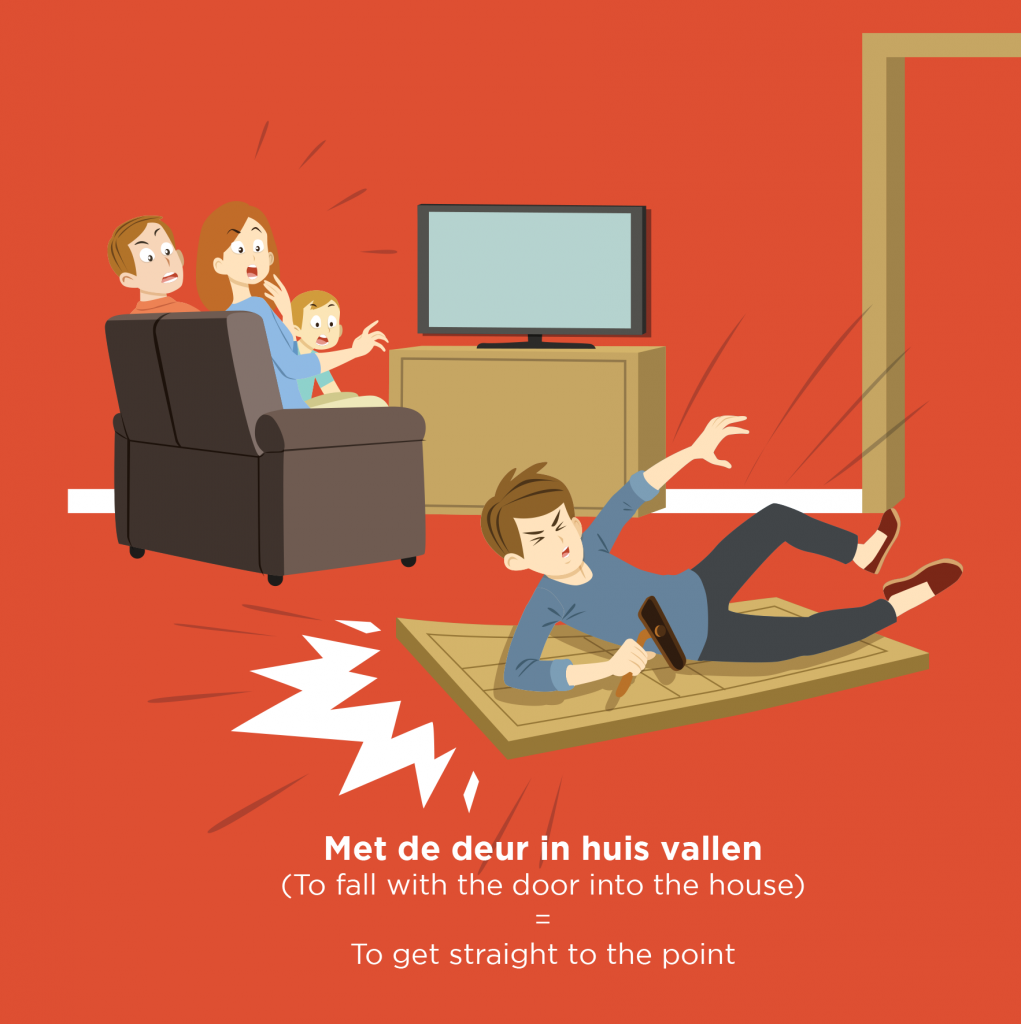
Iemand achter het behang plakken
“To glue someone behind the wallpaper”, logically meaning to find someone very annoying, so you would prefer to have nothing to do with him or her at all.

Met het verkeerde been uit bed gestapt
“To step out of bed with the wrong leg”, as a result waking up in a bad mood.
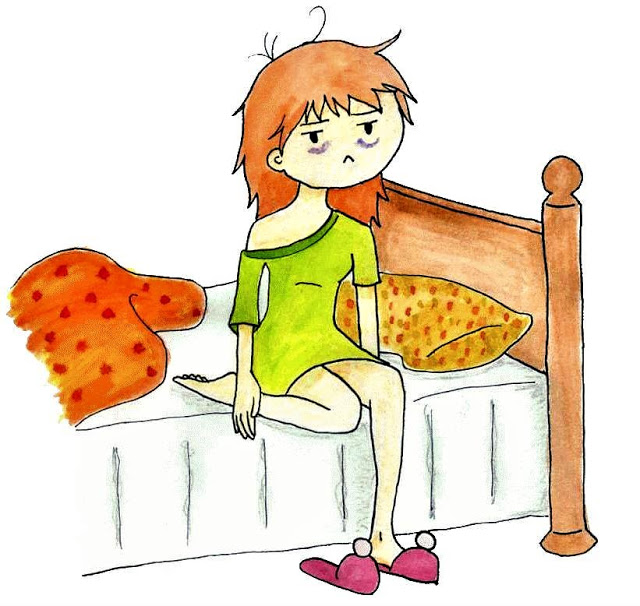
Helaas, pindakaas
Dutch use this expression very often when they want to say “Too bad”, but instead they say “Unfortunately, peanut butter”

Met de mond vol tanden staan
“To sit with your mouth full of teeth” as in to be speechless.
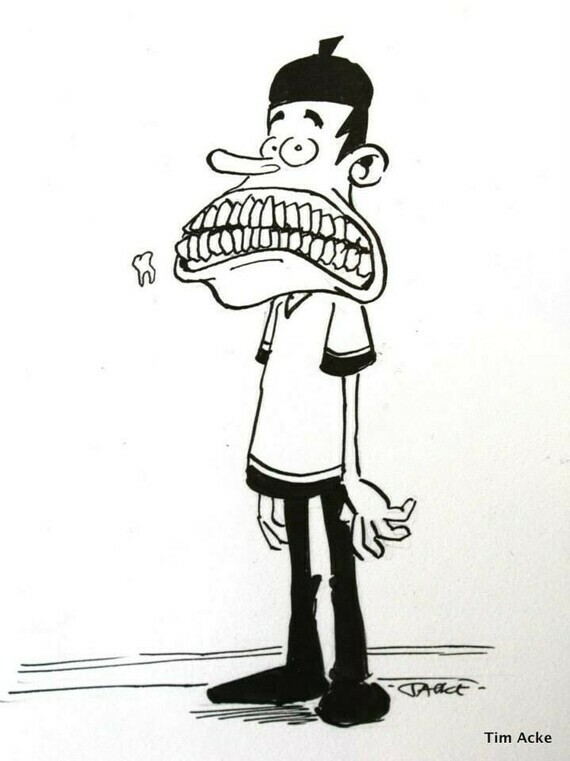
Nu breekt mijn klomp
“Now my wooden shoe is breaking” as I’m totally amazed and didn’t expect it.
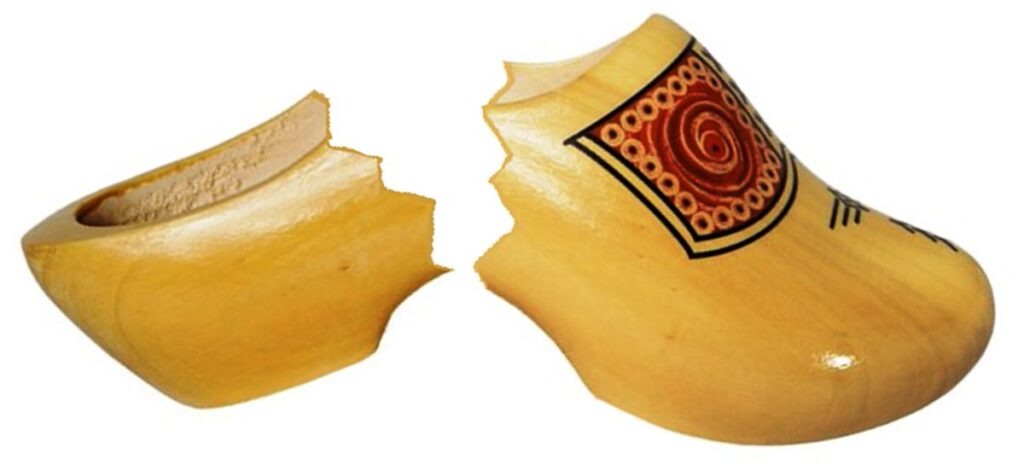
Praten over koetjes en kalfjes
“Talking about little cows and little calves” when you are chatting about nothing of importance.
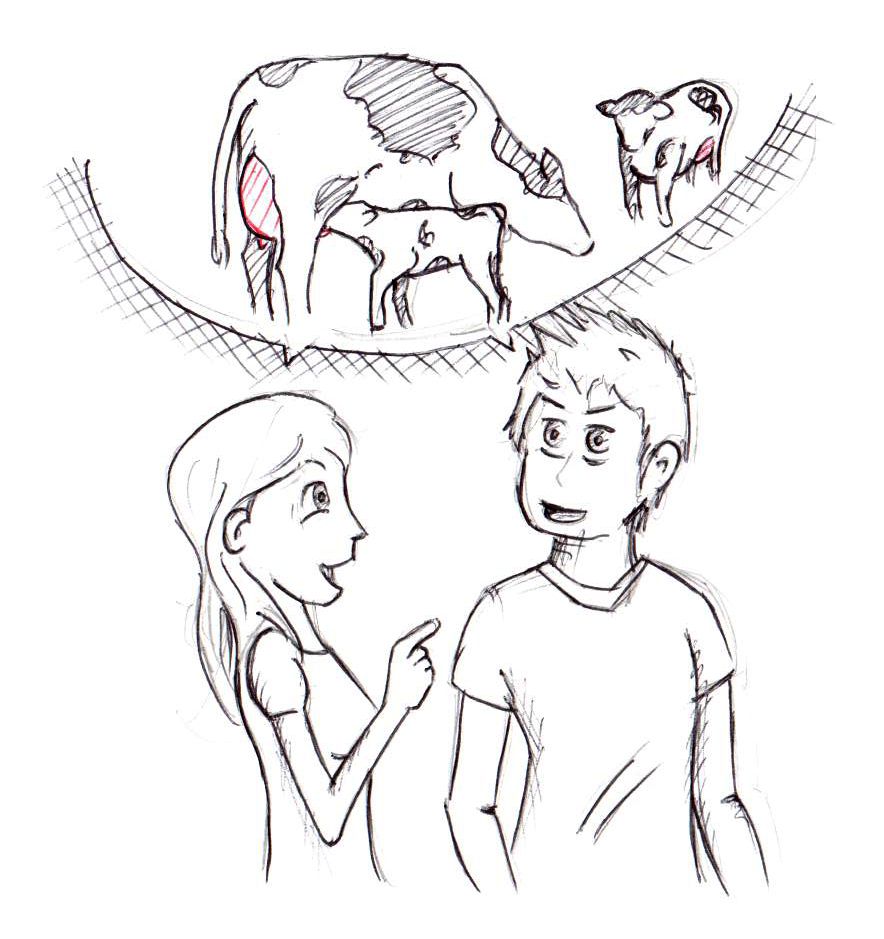
We zullen dat varkentje wel even wassen
“We will certainly get that piglet washed”. Meaning that you will get the job done.

Een fluitje van een cent
“A whistle of a cent”. i.e Something that can be done with very little effort.
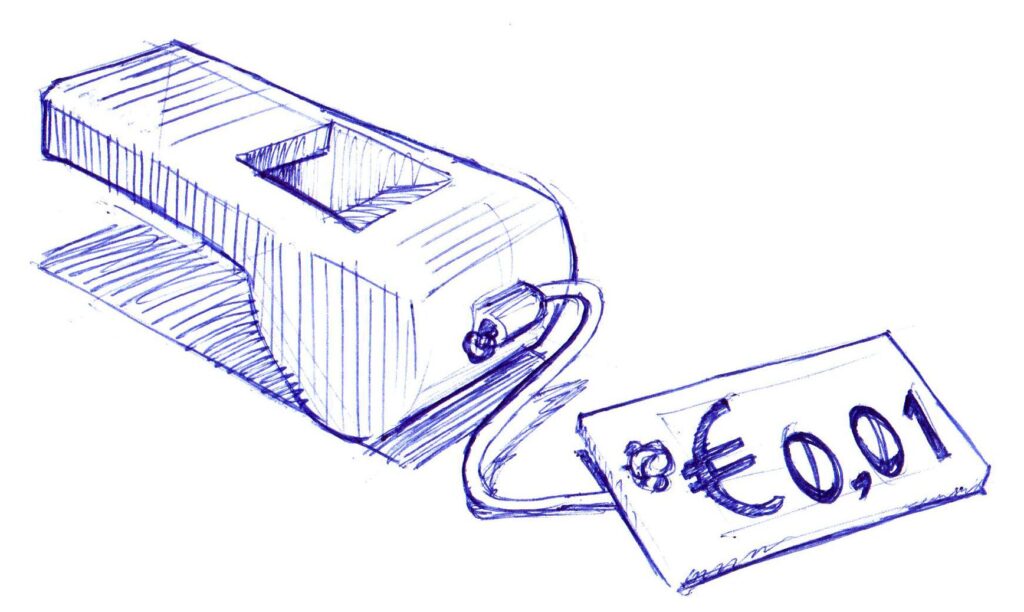
Iets voor een appel en een ei kopen
“To buy something for an apple and an egg”, so very cheaply.

Wat heb ik nou aan mijn fiets hangen?
“What have I got hanging on my bike now?” It is a way of saying ‘What’s going on now?’ or ‘What do I have to deal with now?’
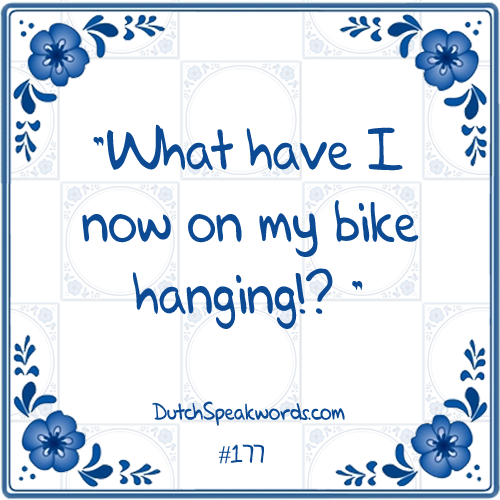
Met zijn neus in de boter vallen
“To fall with your nose in the butter.” To be at the right place at the right time.
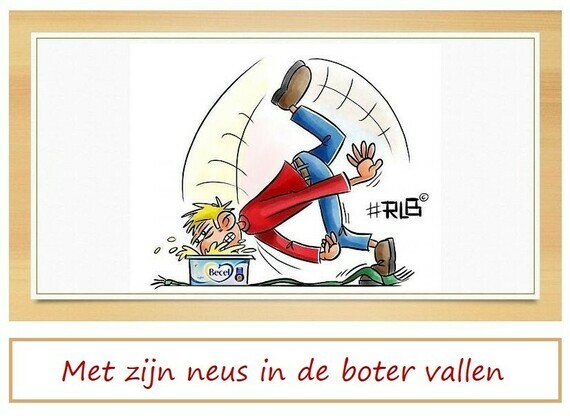
We zullen ze eens een poepie laten ruiken
“We will make them smell a fart”. Certainly that will surprise or impress someone with your behavior. Here is the song!
Wie zijn billen brandt, moet op de blaren zitten
“When your butt burns, you have to sit on the blisters”, so if you do something stupid, you must acknowledge the consequences.
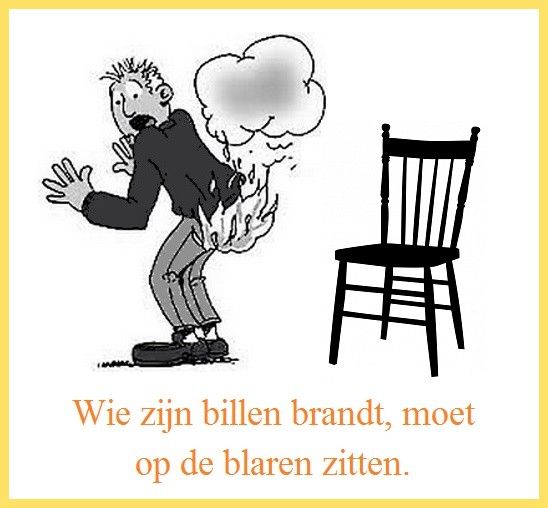
If you’re curious to know other Funny Dutch Words, you can read this article!


